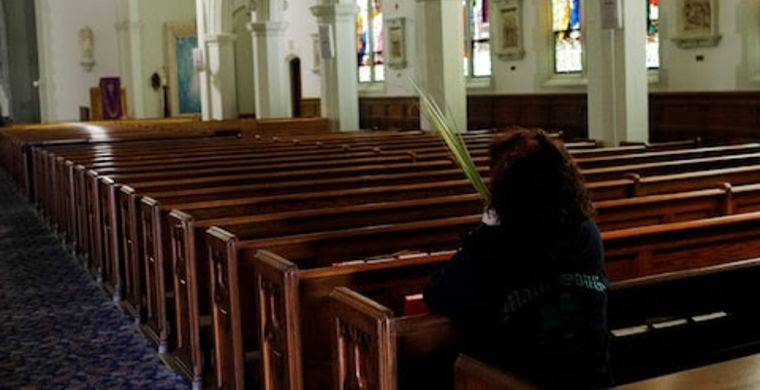Open the churches for Easter -- and give people hope
OPINION
BISHOP MICHAEL NAZIR-ALI
https://www.telegraph.co.uk/news/2020/04/06/open-churches-easter-give-people-hope/
April 6, 2020
We are in the midst of responding to a pandemic the like of which has not been experienced in living memory. Whether it turns out to be as apocalyptic as is claimed remains to be seen, but it is understandable that the Government should opt to make provision for the worst-case scenario.
In all the discussions about the medical, economic and social implications of this crisis, however, I have missed any discussion of its spiritual effects. The lockdown itself will have profound psychological consequences: being unable to work doesn't just hit the pocket, it injures the soul. We are intrinsically social beings and not being able to gather for work or play will have short- and long-term effects on relationships for most of us who are not inclined to be hermits.
Spiritually, a recent study by the Office of National Statistics showed a dynamic connection between faith and good health. Indeed, numerous studies have shown the importance of the spiritual in the healing process. Prayer is known to increase confidence in the possibility of being healed, and others praying for us gives us a sense of a social net when we are feeling alone and threatened. At this time of stress, the presence of chaplains in hospitals, visiting wards, is most important.
At the very least, we should be providing, rather than withdrawing, resources for strengthening and supporting people's faith at this time. It is such a pity, then, that churches, and other places of worship, are not open for prayer. If it is true that church leaders themselves requested that they be closed down, now is the time to undo this mistake.
Going to church is not the same as going to a pub or a football match. Provided that safe distancing is possible and is maintained, this is exactly the time when people will feel the need to go in and be quiet and, perchance, to pray for themselves or a loved one or even the situation as a whole. Why is this any more dangerous than shopping in a supermarket or travelling on the London Underground?
We are now, of course, in the run-up to Easter. There is a venerable custom in Holy Week of all the churches in a particular town or village taking out a procession on Good Friday. This could easily be done while maintaining safe distancing and limiting the number of participants. A procession, moving through our streets, would be a sign of cleansing and healing and of suffering producing hope. Let us have this one indulgence, with whatever safeguards are deemed necessary, and I am sure the results will not be negative for our communities.
This Easter, similarly, will be the first ever when there is to be no public worship in the churches. Nothing is more needed now than the pledge of new life which Easter brings. If we can't gather in our churches, could small groups, keeping a safe distance, be allowed to congregate in parks, large churchyards and other open spaces? Again, safety measures could be specified, but such rejoicing in the new life brought by the Risen Christ could herald a turning point in the battle against this pandemic and set the tone for the rest of the spring.
All of this may sound radical to some, but these proposals are designed to alert us to spiritual resources to fight the pandemic, and to turn us towards the one who holds the whole world in his hands.
Michael Nazir-Ali is a former Bishop of Rochester














